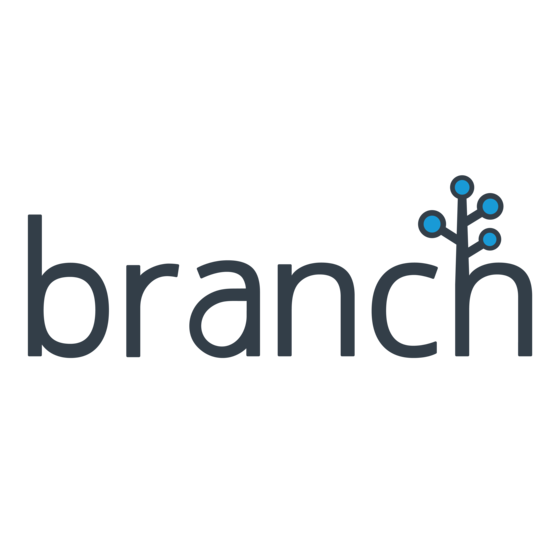10 Best Marketing Attribution Software Shortlist
Here's my pick of the 10 best software from the 17 tools reviewed.
Though my specialty in marketing has always been content, there have been many times in my career where I've been leading teams and strategies across many other channels. Email, PPC, SEM, SEO, social media—you name it.
During these times, I had to analyze a lot of data to see what was working, what wasn't, what could potentially be optimized, and where I should allocate the bulk of the budget. Marketing attribution software helps you do exactly that, as it helps you quickly identify your most effective marketing channels.
So, the fact that there's software to help with this is one problem solved. The next? Figuring out which marketing attribution software is best for you and your team. You may know you want to track and analyze how different marketing channels and touchpoints contribute to conversions and sales—but now you need to figure out which tool is best.
In this post, I'll help make your choice easy, sharing my personal experiences using dozens of different marketing attribution tools with marketing teams of all sizes, with my picks of the best marketing attribution software overall.
Why Trust Our Reviews
We’ve been testing and reviewing marketing software since 2022. As marketing experts ourselves, we know how critical and difficult it is to make the right decision when selecting software.
We invest in deep research to help our audience make better software purchasing decisions. We’ve tested more than 2,000 tools for different marketing use cases and written over 1,000 comprehensive software reviews. Learn how we stay transparent & our software review methodology.
The Best Marketing Attribution Software Summary
| Tools | Price | |
|---|---|---|
| HubSpot Marketing | From $800/month + $45/month for additional seats | Website |
| AppsFlyer | Pricing upon request | Website |
| Branch | Platform usage is free for up to 10,000 monthly active users. | Website |
| Windsor.ai | From $19/month, billed annually | Website |
| Oktopost | Pricing upon request | Website |
| LeadsRx | Pricing upon request | Website |
| Adobe Analytics | From $33.99/month | Website |
| C3 Metrics | All pricing is custom | Website |
| Ruler Analytics | Starts at $199 per month for up to 50,000 users. | Website |
| Dreamdata | Available upon request | Website |

Compare Software Specs Side by Side
Use our comparison chart to review and evaluate software specs side-by-side.
Compare SoftwareHow to Choose Marketing Attribution Software
When selecting software for your business, especially when considering a specialized tool such as marketing attribution software, it's essential to approach the decision with a strategic mindset. Here’s a checklist I like to use that balances general software selection principles with specific considerations for marketing attribution software:
- Determine Your Business Needs and Goals: Outline what problems you're aiming to solve and how this software will support your business objectives. For marketing attribution software, it's vital to understand the marketing channels and activities you wish to track, ensuring the software can accurately allocate credit across the customer journey.
- Evaluate Software Features and Integration Capabilities: Look for essential features that meet your needs and assess the software's ability to integrate with your existing tools, enhancing operational efficiency. The right marketing attribution software should offer comprehensive analytics and reporting for multi-channel tracking and seamlessly integrate with your marketing tools and CRM system.
- Assess Scalability and Flexibility: The software should be able to grow and adapt with your business, accommodating changing needs without significant overhauls. For marketing attribution, this means the ability to incorporate new marketing channels and data sources while providing consistent insights.
- Consider the Total Cost of Ownership (TCO): Account for all costs, including implementation, training, support, and any hardware upgrades. Choose software that fits your budget and offers a clear value proposition. Support and training are particularly crucial for marketing attribution software due to its complexity.
- Review Security, Compliance, and Privacy: Ensuring the software adheres to industry standards and legislation for data protection and privacy is critical. Marketing attribution software must maintain strict security protocols and comply with regulations like GDPR, safeguarding customer data across various channels.
By adhering to this checklist, you can make a more informed decision, selecting software that not only fulfills your current requirements but also positions your business for future success, especially in the area of marketing attribution.
Best Marketing Attribution Software Reviews
Here are my picks for the best marketing attribution software, including overviews, best use cases, features, pros and cons, and pricing information.
HubSpot is an all-in-one growth platform that provides comprehensive tools for marketing, sales, customer service, and content management. With features ranging from CRM and email marketing to social media management and analytics, HubSpot helps businesses of all sizes to execute and optimize their marketing strategies effectively.
Why I picked HubSpot: I like the platform's multi-touch attribution reporting, which allows marketers to track and analyze the entire customer journey, attributing credit to all touchpoints that contribute to a conversion. This detailed visibility helps businesses understand which channels and campaigns are most effective in driving results. Additionally, HubSpot's integration with CRM data ensures that all interactions are accurately tracked and linked to specific contacts.
HubSpot Standout Features and Integrations
Features: HubSpot offers a suite of features including social media management, SEO tools, live chat, content management, lead scoring, web analytics, sales pipeline management, workflow automation, customer segmentation, and custom reporting.
Integrations: Slack, Zapier, Microsoft Dynamics, Shopify, Salesforce, Google Analytics, Mailchimp, WordPress, Eventbrite, SurveyMonkey, Zendesk, and hundreds more.
Pros and cons
Pros:
- Easy-to-use platform
- Integrated marketing, sales, and CRM data
- Customizable reporting dashboards
Cons:
- Free version is very limited
- Advanced features can get pricey
As a data-driven marketer, optimizing ROI is vital. AppsFlyer, an analytics and marketing software, facilitates this by tracking and optimizing your mobile app acquisition funnel.
Remarkably, it's tailored to tackle unique challenges posed by mobile marketing.
Why I picked AppsFlyer: I admire AppsFlyer for its real-time user engagement insights. Its dynamic cohort and retention reports enable easy data filtering and user behavior comparison across segments.
AppsFlyer Standout Features and Integrations
Features: The capability to pinpoint trends specific to users who engaged with the app via the same ad, campaign, media source, or country.
Integrations: With the AppsFlyer Partner Marketplace, you can find integrations with over 10,000 partners and the range of services they offer.
Pros and cons
Pros:
- Excellent reporting features with a focus on app tracking and analysis.
- Powerful analysis of all your marketing initiatives running on affiliate networks and traditional channels.
- Tracking user engagement and activity in real time, which offers insightful data on the effectiveness of your initiatives.
Cons:
- Actual revenues can't be viewed, which can be confusing for marketers looking for long-term daily revenues.
- Some users may find it complicated to navigate and understand the platform.
- Dashboard customization is limited.
I understand the necessity of having the right marketing attribution solution to fuel your ecommerce growth engine. They aren't in the business of charging you for each conversion or selling your retargeting data. They're solely interested in one thing: retaining the loyalty and happiness of your users.
Why I picked Branch: I chose Branch due to its data freedom - offering integrations, APIs, webhooks, and CSV exports, coupled with centralized data across all ad networks for deduplicated, accurate conversion data.
Branch: Standout Features and Integrations
Features: Branch delivers reliable, unbiased data for your mobile campaigns, removing guesswork and providing clarity for even the most intricate conversion paths.
Integrations: NET SDK, Next.js, Eleventy, Google BigQuery, Mailjet, Shopify, Zendesk, Android SDK
Pros and cons
Pros:
- Versatile integration options with a wide range of platforms, enhancing data consolidation and ease of use.
- Provides a cost-effective, lightweight approach to user acquisition analysis and improvement.
- Receives frequent updates to address and resolve issues.
Cons:
- Lacks a free trial option for potential users.
- Occasionally restricts post publishing without clear reasons.
Windsor.ai, a versatile marketing attribution software, assists businesses in tracking marketing efforts across diverse channels and campaigns. It excels in identifying effective strategies for sales and conversions.
Given its adaptability and user-friendly setup, it's a prime choice for businesses seeking to bolster data-driven decisions and optimize marketing initiatives.
Why I picked Windsor.ai: What intrigued me about Windsor.ai was its adaptability, versatility, and API-first approach, making it ideal for startups and businesses looking to integrate multiple data sources.
Windsor.ai Standout Features and Integrations
Features: Windsor.ai shines with its cross-platform data blending, multi-touch attribution, long reporting date ranges, search terms optimization, bid and budget optimizer, and API/database access.
Integrations: Windsor.ai integrates with major marketing platforms, including Google Analytics, Google Ads, Salesforce, Facebook, Twitter, Instagram, Tiktok, and Snapchat.
Pros and cons
Pros:
- Enhances visibility into expenditures on digital media
- Exceptional customer service and support
- Provides effortless single and multi-channel attribution
Cons:
- Limited functionality in the free plan.
- May encounter performance issues with large data volumes, particularly on mobile and tablet devices.
Oktopost is an incredibly powerful and user-friendly social media monitoring and analysis tool for B2B marketers. It offers in-depth insights into your viewers' behavior using AI-powered algorithms.
This makes it simple for marketers to gauge the success of their initiatives and operations and monitor changes over time.
Why I picked Oktopost: The platform has an incredible ability to track the impact of social media on lead generation and conversions. Plus, it has the ability to offer suggestions for enhancing social media visibility and optimizing engagement.
Oktopost Standout Features and Integrations
Features: Oktopost is a marketing attribution solution you might want to test because of its cutting-edge customer engagement, sentiment and trend analysis, audience targeting, predictive analytics, and influencer monitoring features.
Integrations: Canva, WordPress, Google Analytics 360, Microsoft Teams, HubSpot Marketing Hub, Dynamics 365, Zapier, and of course, many others.
Pros and cons
Pros:
- Personalized content curation based on platform and audience.
- Ideal for social media managers needing productivity boost and real-time post analytics.
- Streamlines daily social media management with performance metrics monitoring.
Cons:
- Lack of free trial may deter potential users.
- Requires leaderboard segmentation based on social campaigns.
LeadsRX is an insightful marketing attribution solution that offers a comprehensive view of the customer journey. Its Universal Conversion Tracking ‘Pixel’ allows marketers to optimize campaigns and budgets in real-time, significantly improving ROAS.
Why I picked LeadsRX: I was captivated by LeadsRX's capacity to transcend traditional digital analytics. Its Universal Conversion Tracking Pixel™ provides complete online and offline channel coverage, a rarity in the field, making it a potential game-changer for businesses with diverse advertising strategies.
Standout Features and Integrations
Features: LeadsRX's cross-domain, cross-device tracking feature is remarkable, offering a comprehensive view of customer journeys, including offline channels—a rarity in this domain.
Integrations: For a complete list of integrations, I recommend contacting LeadsRX directly. However, they mention Salesforce, Optimizely, HubSpot, and CallRail among their partnerships.
Pros and cons
Pros:
- Their data insights provide a fair evaluation of marketing strategies' effectiveness.
- Real-time insights enable nimble campaign adjustments.
- LeadsRX's Universal Conversion Tracking Pixel™ delivers a holistic view of customer journeys.
Cons:
- The lack of a free trial could deter users wanting to sample the platform before purchase.
- The absence of visible pricing details on the website may inconvenience some.
Best for companies that require advanced web analytics and customer behavior insights
With a wide range of attribution models, including algorithmic attribution powered by advanced machine learning, Adobe Analytics is the ultimate tool for advanced web analytics and customer behavior insights.
Why I picked Adobe Analytics: Adobe Analytics impressed me with its deep data analysis capabilities, revealing hidden patterns and highlighting statistical anomalies. It effectively uncovers correlations underlying unexpected customer behavior, unusual data points, and sudden shifts in metrics across different audience segments.
Adobe Analytics: Standout Features and Integrations
Features: Adobe's data warehouse provides sophisticated data storage, reprocessing capabilities, and extensive reporting tools. Additionally, its data feeds offer regular batch delivery of raw, insightful data.
Integrations: Adobe Analytics integrates with renowned platforms including Adobe's own suite, Hootsuite, Invoca, Branch.io, and BrightEdge.
Pros and cons
Pros:
- The persistent IDs ensure consistent and reliable data attribution over time, enhancing the accuracy of your insights.
- Provides detailed channel and marketing analytics for deeper understanding of user interactions.
- Empowers decision-making through predictive analytics.
Cons:
- Lack of free trial may deter prospective users from experiencing the platform's capabilities firsthand.
- Initial steep learning curve may be challenging for non-tech-savvy users.
As an avid digital marketer, I'm always on the hunt for the best tools to optimize my efforts. C3 Metrics is a marketing attribution powerhouse, perfect for large organizations across sectors like D2C, ecommerce, Financial Services, and more.
Why I picked C3 Metrics: C3 Metrics shines in handling complex ad portfolios for businesses with over $6 million in annual media budgets. Its multi-touch attribution (MTA) approach is excellent for organizations across multiple channels.
C3 Metrics Standout Features and Integrations
Features: C3 Metrics excels in quality control and conversion tracking, turning raw information into digestible analytics. Its Attribution Data Cloud allows effortless data filtering, categorizing, and modeling.
Integrations: Interestingly, the company doesn’t list the various platforms it integrates with on its website. However, as an attribution modeling and data analytics platform, C3 Metrics aims to provide a comprehensive view of marketing performance and the customer journey.
Pros and cons
Pros:
- C3 Metrics' focus on handling complex ad portfolios makes it ideal for large businesses operating across multiple channels.
- Its unique client-centric tagging infrastructure ensures high-level privacy.
- Exceptional product knowledge and adaptability to diverse client-specific use cases.
Cons:
- It may be challenging for businesses to assess its compatibility with their existing tech stack.
- High-end solutions might not be affordable for small businesses and startups.
Ruler Analytics is a powerful tool that focuses on providing you with insightful data and accurate multi-touch attribution, allowing you to make informed decisions and upgrade your marketing efforts.
Why I picked Ruler Analytics: I must admit, Ruler Analytics has truly impressed me as a top-tier marketing attribution software for small businesses emphasizing online marketing. Its unique ability to track static and offline calls provides invaluable insights into caller journeys.
Ruler Analytics Standout Features and Integrations
Features: Ruler Analytics excels in managing leads and channels, offering ROI emphasis, visitor tracking, and data-driven marketing decisions.
Integrations: It integrates smoothly with HubSpot, Mailchimp, Zoho CRM, Google Ads, and Marketo, enabling a comprehensive view of your marketing efforts.
Pros and cons
Pros:
- Unique ability to track and analyze both static and offline calls, providing valuable insights
- You can match multiple clicks to both form submissions and phone calls.
- The ability to track both form submissions and online chat interactions.
Cons:
- It can be challenging to track how performance has gotten better over a certain period of time.
- It’s possible some users may be intimidated by the number of features the software boasts.
As a B2B marketer, you understand that tracking and attributing revenue to specific marketing activities is crucial. But it's problematic - there are countless touchpoints involved in the B2B buying process, and it can take weeks upon weeks to see the results of your efforts. That's where Dreamdata comes in.
Why I picked Dreamdata: I chose Dreamdata for its comprehensive client journey view, thanks to its ability to collect, join, and model relevant B2B data. It's built exclusively for B2B marketers, catering to their specific requirements.
Dreamdata Standout Features and Integrations
Features: Dreamdata's standout attribute is its machine learning algorithm-based attribution. It analyzes every customer journey touchpoint, providing a more accurate credit assignment.
Integrations: HubSpot, Zoho CRM, Pipedrive, Microsoft Dynamics, Salesforce, and Zendesk all integrate with Dreamdata, along with many others.
Pros and cons
Pros:
- Dedicated expert team committed to ensuring maximum tool utility.
- Offers insightful, actionable reporting beyond basic metrics.
- Provides a deep, account-level view for enhanced marketing performance insights.
Cons:
- The abundance of features, data, and analyses can be confusing for beginners.
- Initial tool use may be overwhelming due to complexity.
Other Marketing Attribution Software
Though they didn’t make the top spot, there are other marketing attribution platforms that excel in specific scenarios and could be a perfect fit for certain business types.
Related Marketing Tool Reviews
If you still haven't found what you're looking for here, check out these tools closely related to digital marketing strategy that we've tested and evaluated.
- Marketing Software
- Marketing Management Software
- Account Based Marketing Software
- Social Media Management Software
- Email Marketing Software
Selection Criteria For Marketing Attribution Software
Selecting the right marketing attribution software involves a careful evaluation of what each one has to offer. Through extensive personal trials spanning nearly a decade and lots of additional research, I've developed criteria to guide you in making an informed decision.
Core Functionality: 25%
Marketing attribution software must excel in a few core areas that are critical to nearly all marketing teams:
- Accurate tracking of customer interactions across multiple channels and touchpoints.
- Comprehensive analysis of the customer journey to determine which marketing efforts are driving conversions.
- Real-time reporting capabilities to enable agile marketing decisions.
- Integration with other marketing tools and platforms for seamless data flow and insights.
- Attribution modeling flexibility to align with different business models and marketing strategies.
Additional Standout Features: 25%
To differentiate among options, I look for unique features that elevate a tool above its peers:
- Advanced machine learning algorithms for predictive analytics, helping anticipate future customer behaviors based on historical data.
- Cross-device tracking capabilities to provide a holistic view of the customer journey, regardless of the device used.
- Custom attribution models that allow marketers to tailor the attribution to the nuances of their specific industry or business model.
- Examples include tools that offer unique visualization tools for mapping the customer journey or innovative approaches to handling data privacy concerns.
Usability: 10%
A balance between powerful functionality and user-friendliness is crucial:
- Intuitive dashboards that present data in an easily digestible format, enabling quick insights at a glance.
- A clean, user-friendly interface that simplifies complex data analysis, making it accessible to users regardless of their technical expertise.
Onboarding: 10%
Efficient onboarding processes are essential for swift adoption and realization of value:
- Comprehensive training materials, such as videos, templates, and product tours, to facilitate a smooth learning curve.
- Interactive assistance, like chatbots or dedicated account managers, to provide support during the initial setup and customization.
Customer Support: 10%
Exceptional customer support distinguishes the best tools in this category:
- Responsive and knowledgeable support teams available across multiple channels (email, phone, live chat).
- A robust knowledge base with detailed documentation, FAQs, and community forums for self-service troubleshooting.
Value For Money: 10%
Assessing whether a tool offers a strong return on investment is key:
- Competitive pricing structures that align with the features and benefits provided.
- Flexible pricing plans that accommodate businesses of various sizes and scales.
Customer Reviews: 10%
Customer testimonials and reviews offer invaluable insights into real-world usage:
- High satisfaction ratings across diverse industries and business sizes.
- Positive feedback on specific features like the tool’s analytics precision, ease of use, and customer support responsiveness.
When choosing marketing attribution software, it’s imperative to consider a blend of core functionalities, unique features, usability, onboarding ease, customer support quality, value for money, and positive customer reviews.
Trends in Marketing Attribution Software for 2024
Here are some trends I’ve noticed for marketing attribution software these days, plus what they might mean for the future of the marketing industry. I like to keep up with all kinds of product updates, press releases, and release logs to tease out the most important insights.
Integrated Multi-Touch Attribution Models
There's a significant push towards more integrated multi-touch attribution (MTA) models, stemming from the need to analyze consumer interactions across multiple channels and touchpoints more accurately, providing a holistic view of the customer journey. Tools like Adobe Analytics and Google Analytics have introduced enhanced MTA capabilities, focusing on AI-driven models to allocate credit more accurately across touchpoints. This trend addresses the challenge of fragmented customer journeys, enabling marketers to pinpoint the impact of each marketing effort with greater precision.
Predictive Analytics and AI
Predictive analytics and AI are becoming central to marketing attribution software, enabling predictive modeling of customer behavior and sales conversions. HubSpot has heavily invested in AI functionalities, incorporating predictive analytics that forecast future consumer actions based on historical data. This addresses the need to anticipate customer behavior, allowing for more strategic planning and targeting in marketing efforts.
Privacy-Focused Tracking
With increasing concerns over privacy and data protection, there's a noticeable pivot towards privacy-focused tracking methods. Platforms are adopting first-party data strategies and privacy-compliant tracking technologies, as seen in recent updates from Tealium and Segment. This trend is a response to the growing demand for data privacy, ensuring compliance with regulations like GDPR and CCPA while still gathering meaningful insights.
Decline in Cookie-Dependent Tracking
There's a marked decrease in the importance of cookie-dependent tracking mechanisms, propelled by privacy regulations and the phasing out of third-party cookies. The diminishing reliance on cookies is evident from the development of alternative tracking technologies and methods that focus on first-party data and contextual targeting. This shift reflects the industry's adaptation to a changing regulatory environment and the need for more sustainable, privacy-respecting tracking methods.
These trends underscore the industry's commitment to addressing the complex challenges faced by marketing professionals, ensuring they have the tools necessary to navigate the digital landscape effectively.
What Is Marketing Attribution Software?
Marketing attribution software is a tool that tracks and analyzes the impact of various marketing activities on customer behavior and sales. The purpose is to identify which marketing channels and tactics are most effective in leading to conversions, allowing businesses to understand the customer journey better.
Features of Marketing Attribution Software
These are the key features I evaluate when I am looking at marketing attribution software.
- Multi-Channel Tracking: This feature enables businesses to track customer interactions across various channels, including digital (like social media, email, and PPC) and offline channels (such as events and call centers), providing a comprehensive view of the customer journey.
- Attribution Modeling: The software offers different models (such as first-touch, last-touch, linear, time decay, and algorithmic) to attribute credit to various marketing touchpoints. This helps in understanding the impact of each channel and campaign on the final conversion.
- Integration Capabilities: Effective marketing attribution software integrates seamlessly with other tools and platforms, such as CRM systems, marketing automation software, and analytics tools, to gather and analyze data from various sources.
- Cross-Device Tracking: With customers using multiple devices (smartphones, tablets, laptops) to interact with brands, cross-device tracking is essential for accurate attribution, ensuring that the customer journey is tracked seamlessly across devices.
- Real-Time Analytics and Reporting: The ability to access real-time data and generate detailed reports is vital for timely decision-making. This feature allows marketers to quickly assess campaign performance and make adjustments as needed.
- User Journey Visualization: Visualization tools within the software help in mapping out the entire customer journey, highlighting key touchpoints and interactions that led to conversion. This makes it easier to understand complex paths to purchase.
- ROI Measurement: Marketing attribution software measures the return on investment (ROI) for different marketing initiatives, providing insights into which campaigns are generating value and which are not. This helps in optimizing marketing spend for better returns.
- Customizable Attribution Windows: The software allows businesses to set custom attribution windows, which is the timeframe in which a touchpoint is considered to have influenced a conversion. This is crucial for businesses with longer or shorter sales cycles.
- Fraud Detection: Some solutions include features to detect and filter out fraudulent activities, ensuring that the attribution data is accurate and reliable.
- Collaboration and Sharing Features: The ability for teams to collaborate on the platform and easily share reports and insights with stakeholders is important for strategic planning and execution.
By leveraging these features, businesses can gain a deeper understanding of their marketing performance, enabling them to make data-driven decisions and optimize their marketing strategies for maximum impact.
Benefits of Marketing Attribution Software
Marketing attribution software is an essential tool for those looking to optimize their marketing strategies and improve their return on investment. And really, aren't we all trying to do that, always? Here are five primary benefits of using marketing attribution software for users and organizations:
- Improved Marketing ROI: By pinpointing which marketing channels and campaigns are generating the most revenue, users can allocate their budgets more effectively, leading to a higher return on investment. This precision in spending ensures that marketing dollars are invested in areas with the highest impact.
- Enhanced Campaign Optimization: Marketing attribution software provides detailed insights into campaign performance across all channels. This enables marketers to fine-tune their campaigns in real-time, maximizing effectiveness and efficiency.
- Better Customer Insights: The software offers a deep understanding of the customer journey, highlighting which touchpoints and interactions are most influential in driving conversions. This knowledge allows businesses to tailor their marketing strategies to better meet customer needs and preferences.
- Increased Marketing Agility: With real-time data and analytics, organizations can quickly adjust their marketing strategies in response to performance data or market changes. This agility ensures that marketing efforts remain relevant and effective, even in dynamic market conditions.
- Strategic Decision Making: By providing a comprehensive view of the marketing landscape and the effectiveness of various campaigns and channels, marketing attribution software supports data-driven strategic decisions. This leads to more targeted and successful marketing initiatives.
By making it possible to accurately measure and analyze the effectiveness of each marketing touchpoint, businesses can optimize their strategies, improve their ROI, and ultimately drive more successful outcomes.
Cost & Pricing for Marketing Attribution Software
When exploring your options in marketing attribution software, it's really helpful to understand the various plan and pricing options available. The right plan for your organization will depend on several factors, including the size of your business, the complexity of your marketing efforts, and the specific features you need.
Plan Comparison Table for Marketing Attribution Software
| Plan Type | Average Price | Common Features |
|---|---|---|
| Starter | $100 - $500/month | Basic attribution models, multi-channel tracking, standard reporting, and email support. |
| Professional | $500 - $1,500/month | Advanced attribution models, cross-device tracking, integration capabilities, real-time analytics, and phone support. |
| Enterprise | $1,500+/month | Custom attribution models, API access, dedicated account manager, custom integrations, and strategic consulting services. |
| Free | $0 | Limited attribution models, basic multi-channel tracking, and community support. |
Selecting the right plan involves balancing the depth of insights you require with your available budget. Always consider your organization's specific requirements and growth potential when choosing a plan to ensure that the software can scale with your business.
New & Noteworthy Product Updates
Here are some key product updates for marketing attribution software products that users and software buyers should be aware of this quarter. Learn what’s new, if it’s hot—or not, and why each major change matters for marketing experts.
April 2024 Updates
Here are some April update highlights.
ActiveCampaign Update Notes
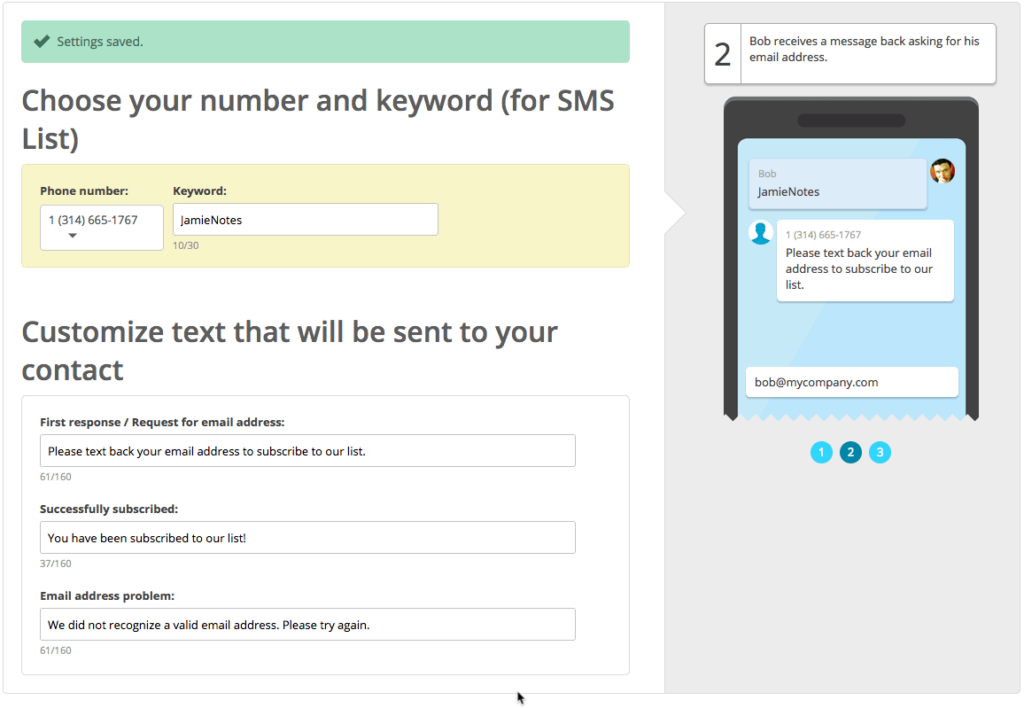
In April 2024, ActiveCampaign announced a significant update to their SMS capabilities, introducing new enhancements designed to improve the effectiveness of mobile marketing strategies.
The update includes advanced features that enhance SMS sending capabilities, allowing for more robust and efficient communication with customers. It also improves the integration of SMS with other marketing channels, ensuring that businesses can more effectively coordinate their marketing efforts across different platforms.
This means that SMS campaigns can be better aligned with email, social media, and other marketing activities, providing a cohesive experience for customers. For users, the value of this update lies in its potential to drive higher engagement and conversion rates through targeted, well-coordinated mobile marketing campaigns.
Verdict: Not! ActiveCampaign's updates this quarter were mostly smaller, quality-of-life stuff—nothing to write home about. I look forward to what might come next.
March 2024 Updates
Here are some March update highlights.
Windsor AI Update Notes
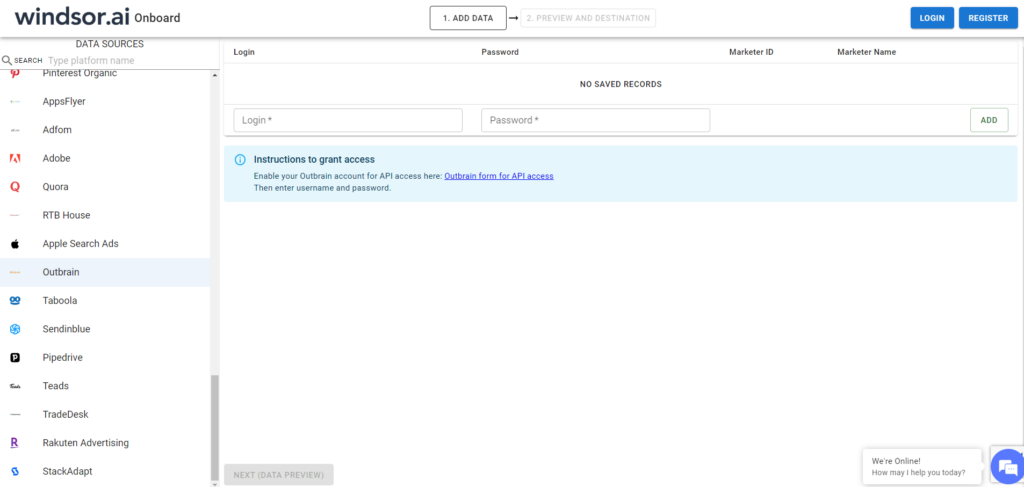
On March 4, 2024, Windsor AI rolled out a significant update to their video platform, enhancing its capabilities to distribute personalized videos at scale via email and SMS.
The update to Windsor AI's platform introduces advanced features that allow businesses to effortlessly send millions of personalized videos. This will help with optimizing customer engagement strategies by enabling the delivery of a high volume of customized video content created from a single source video.
This process ensures that each recipient receives a video message that feels personally tailored to them, whether it's through tailored offers, messages, or information, all derived from a single video template. This approach not only streamlines the communication process but also enhances the effectiveness of marketing campaigns.
Verdict: Hot! Video content is out-achieving written and static-image counterparts by a mile and a half. Being able to personalize and distribute video content at scale is huge.
AppsFlyer Update Notes
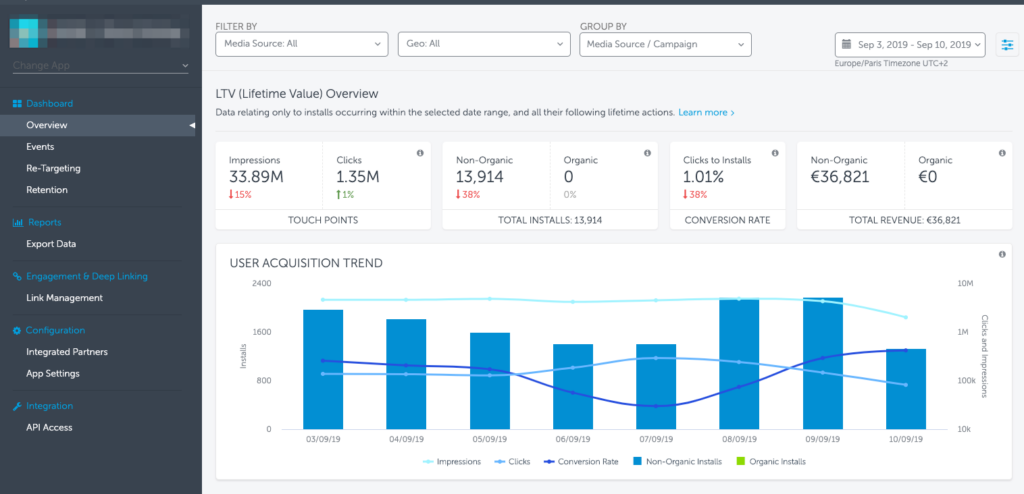
On March 21, 2024, AppsFlyer introduced a significant update to its ROI360 Advanced suite: the Unattributed Ad Revenue Postbacks feature. This enhancement is designed to provide a more comprehensive data sharing capability, specifically targeting interactions with media partners.
The Unattributed Ad Revenue Postbacks feature allows for the sharing of ad revenue data that has not been directly attributed to specific advertising sources or campaigns.
By including data on ad impressions that do not directly lead to sales but still play a role in the conversion funnel, AppsFlyer users can achieve a more accurate and comprehensive understanding of their marketing campaigns' overall performance. This way, marketers can better allocate resources to different channels by understanding the indirect contributions of various advertising elements to revenue generation.
Verdict: Hot! Unattributed marketing data can be hard to add into your monthly ROI calculations. Being able to grab this data and place it appropriately will be super helpful.
HubSpot Update Notes
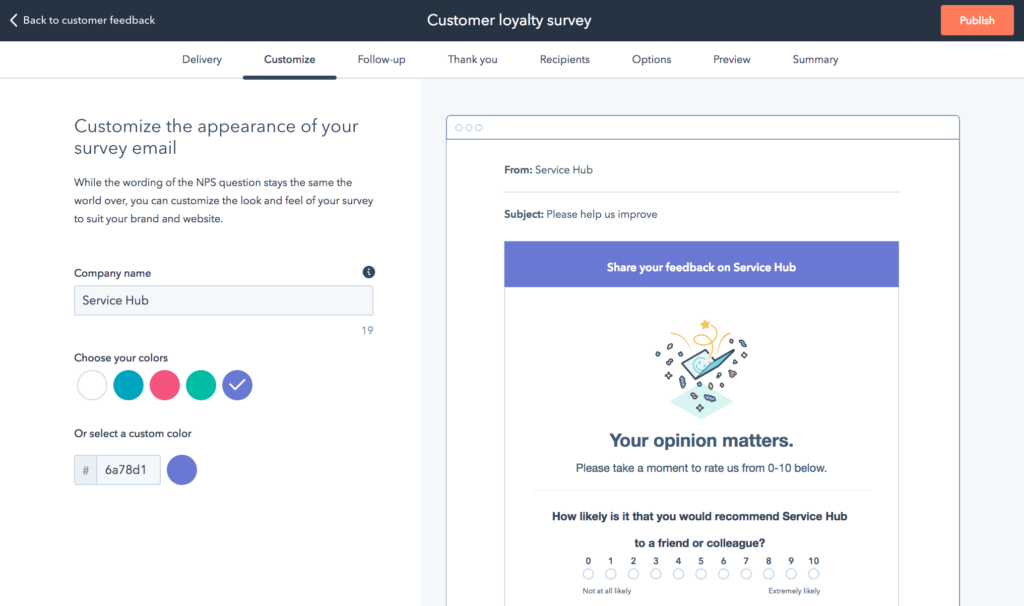
In March 2024, HubSpot introduced a significant enhancement to its Service Hub Pro+ offerings with the launch of Custom Feedback Surveys on Web. This new feature allows businesses to create and deploy customized feedback surveys directly on their websites.
The surveys are designed to be highly adaptable, enabling companies to trigger them based on specific visitor behaviors, such as the amount of time spent on a page or how far a visitor scrolls down a page. By understanding visitor behavior and preferences at a granular level, companies can make data-driven decisions to optimize their websites and marketing strategies.
By setting conditions for when the surveys appear, such as after a visitor has been on a page for a predetermined period or has scrolled through a certain percentage of the content, businesses can capture more relevant and timely insights. This targeted approach helps ensure that the feedback collected is more aligned with the visitor's experience on the site.
Verdict: Hot! Surveys are a great marketing tool but needing to source a whole new software for them can be a pain. Having feedback surveys built right into Hubspot saves time and effort.
Branch Update Notes
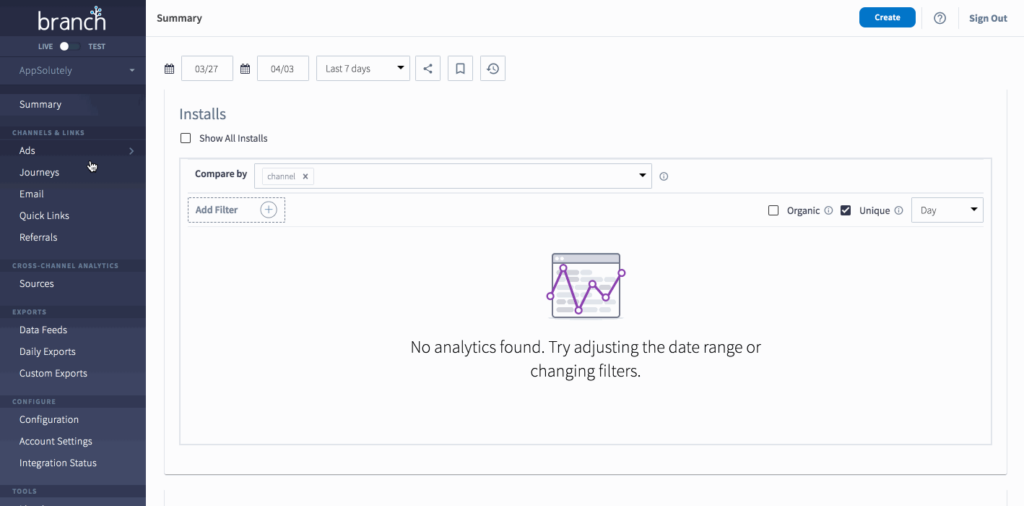
In March 2024, Branch.io announced a significant upgrade to its email marketing solutions with the introduction of Universal Email, replacing the earlier version known as Deep Linked Email.
Universal Email is designed to enhance how email campaigns integrate with mobile apps by facilitating deeper and more precise linking capabilities. With this update, marketers can now direct users from an email directly to specific locations within an app, bypassing traditional navigation hurdles.
By minimizing friction and creating a seamless transition from email to app, Branch.io helps businesses capitalize on user interest immediately, leading to higher conversion rates and enhanced customer satisfaction. This update is particularly beneficial for ecommerce and retail apps, where quick access to products and offers can directly influence buying decisions.
Verdict: Not! If your software features aren't mobile-optimized 110% by now, I don't know what to tell you. So 2010!
Oktopost Update Notes

In March 2024, Oktopost announced a significant enhancement to its platform with the expansion of social selling tools (AKA social commerce) designed to refine and amplify social selling strategies for B2B marketers. This development introduces a suite of new tools that specifically target the improvement of content creation and distribution across various social networks.
The core functionality of these newly introduced tools lies in their ability to enhance the creation and dissemination of content across social channels. By automating and optimizing several aspects of the content lifecycle, these tools help marketers efficiently manage their social media presence. This is particularly crucial for B2B companies where content plays a pivotal role in sales strategies.
Stronger social selling strategies can lead to increased efficiency in campaign management and potentially higher ROI on social selling initiatives. Marketers can expect these tools to significantly contribute to more streamlined operations and improved outcomes from their social media strategies.
Verdict: HOT! Customers increasingly expect that they can one-click your social content and be taken to the exact page, product, sale item that they want. Oktopost is ensuring that's the case!
February 2024 Updates
Here are some February update highlights.
LeadsRx Update Notes

On February 2, 2024, LeadsRx introduced a significant update to their platform, entitled "Blending AI and Multi-Touch Attribution". This update marks a pivotal integration of Artificial Intelligence (AI) and Large Language Models (LLMs) with Multi-Touch Attribution (MTA).
The focus of this enhancement is on improving the interpretation and utility of both text-based and numerical data within the marketing analytics sphere. By leveraging AI and LLMs, LeadsRx can now provide more nuanced insights into customer behaviors and interactions across various marketing channels.
The value of this update to LeadsRx users is substantial. By providing a clearer picture of customer journeys and the effectiveness of different marketing touchpoints, marketers can optimize their advertising strategies with greater confidence. This integration enables the system to dissect complex data sets, offering a more granular view of how each touchpoint influences customer decisions and conversion paths.
Verdict: HOT! AI/ML are not just buzzwords and LeadsRx is leveraging them in the way they work best: sorting, amplifying, and drawing connections between data points to save you time.
Frequently Asked Questions
Here are some answers to questions you may still have about marketing attribution software.
What are the common challenges in implementing marketing attribution software?
What are the four types of marketing attribution models?
What are the key differences between single-touch and multi-touch attribution?
Can marketing attribution software integrate with all CRM platforms?
How does marketing attribution software impact budget allocation decisions?
Are there specific attribution tools for small vs. large businesses?
Can marketing attribution software track offline marketing efforts?
Other Marketing Intelligence Software Reviews
Marketing software comes in all shapes and sizes, from social media platform management to website and product reporting. You'll probably need several tools to cover the whole gambit of needs. Here are some other software review lists that I recommend checking out:
- Affiliate Marketing Software
- Marketing Dashboard Software
- Marketing Measurement Tools
- Market Intelligence Software
- PR Analytics Tools
- Performance Marketing Platforms
- MLM Software
Conclusion
In your pursuit of a marketing attribution solution, start by examining your principal channels and the attribution models you wish to employ. Quality marketing attribution software will go beyond the constraints of single-touch attribution, helping you discern the interconnected touchpoints in your campaigns.
Don't overlook the power of a free trial — it's your opportunity to "test drive" the software. Buying a solution without experiencing its functionality would be like buying a car without giving it a test drive.
To stay informed on marketing trends and strategies, sign up for the CMO newsletter.





